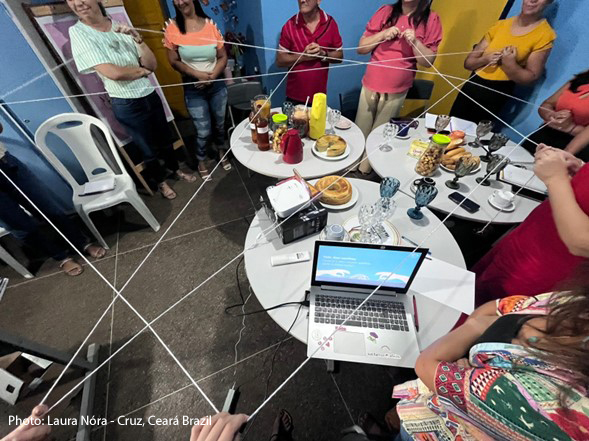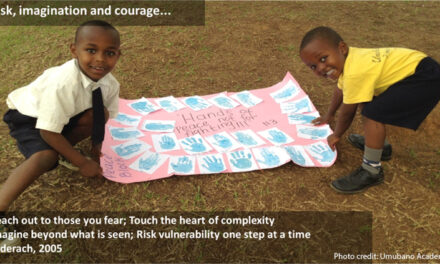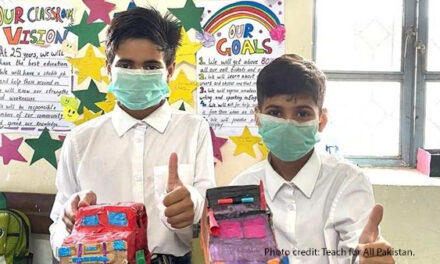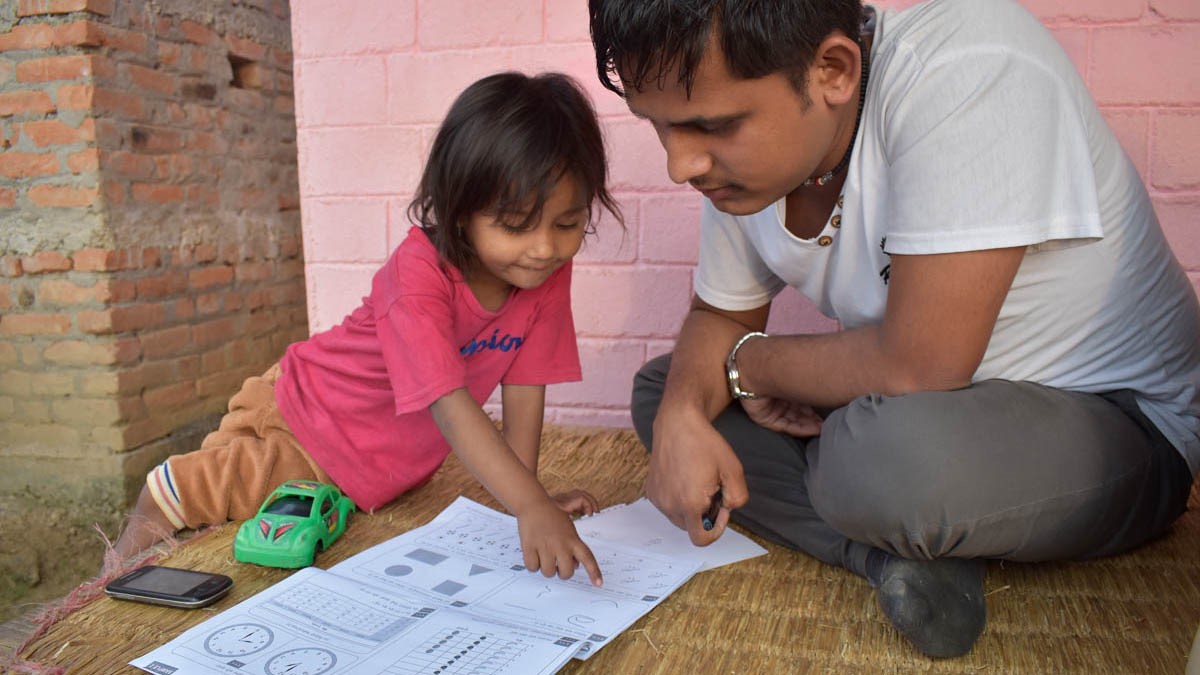This blog was written by Laura Nóra (Instituto Salto) and Emily Markovich Morris (Center for Universal Education – Brookings Institution). It was based on a presentation given at the 2023 UKFIET conference.
“Research is confined to universities and research institutions, and as school-level teachers we do not have any opportunity to be involved in research or conduct any research. We want to contribute as researchers.” In a few words, Nilufar Yasmin, a government school Head Teacher, captured how teachers are rarely positioned as lead researchers and experts in education studies. Her sentiments resonated with others at the civil society organisation, Education and Cultural Society in Bangladesh, and the Center for Universal Education (CUE) at the Brookings Institution in the US, who are collaborating on family, school, and community engagement research in rural secondary schools.
This study is part of a larger transnational research collaborative that is developing a methodology for understanding families’, educators’, and students’ beliefs and experiences in education, and strategies for how to create deeper partnerships. In this research collaboration, educators are leading research with schools in their communities. One of the intentions of the collaborative is to demonstrate how educational research can embrace more inclusive, participatory, and community-driven approaches and intentionally disrupt power dynamics as shared in the recommendations below.
Co-developing a conversation starter methodology
A collective of fourteen civil society organisations and school teams from six continents has been working together with CUE to develop the Conversation Starter Tools and methodology, an open source and community-driven research approach that guides schools and community organisations to understand beliefs and perspectives of families, educators, and students in order to build deeper partnerships. The methodology uses a participatory process whereby school or community teams survey beliefs and experiences of families, educators, and students, and use the findings to spark intentional and critical dialogues in schools. Through these intentional dialogues, relational trust between families, educators, and students is built and innovative strategies to further partnerships are developed. The organisations in the collaboration meet to share learnings and lessons with each other and the larger Family Engagement in Education Network. Six of the emerging recommendations are shared below.
Recommendations on how to disrupt power dynamics
Recommendation 1: Support existing expertise. Emphasise resource-sharing over capacity building.
In research and evaluation efforts, school and community teams are rarely positioned as research experts, despite their deep knowledge of the context and environment. Designated experts are often scholars from academic and research institutions. As was noted by the team in Bangladesh, we need to acknowledge the distinct insights and perspectives that educators and school leaders bring and position them as co-leaders in the planning, design, and implementation of research.
Recommendation 2: Think co-construction and not translation or adaptation.
True collaboration goes beyond translation or adaptation of tools. It requires reflecting deeply on the language(s) teams will conspire and work in, how research tasks and roles are shared, and how team members address and share authority all the way through the process. Centering the process within the communities where the methodology is used, rather than simply translating or adapting approaches, is crucial. In Brazil, teams worked fully in Portuguese and in the context of the government schools conducting the research; community members surveyed families and educators and facilitated conversations based on the questions that emerged.
Recommendation 3: Create opportunities for supporting research that is not just evaluative.
For many civil society organisations and institutions, opportunities to conduct research are tied to monitoring, evaluation, and learning (MEL) activities. While MEL activities help programmes/projects identify how they are contributing to change, MEL agendas are often influenced by various stakeholders, including funders and those leading implementation. Evaluative research helps contribute to the field of international education, but research outside of an evaluative framework allows teams to examine questions bigger than a project/programme and to contribute to general knowledge and social change efforts.
Recommendation 4: Position youth as essential, not only potential, partners.
One critique of educational research is that it too often does not meaningfully include and centre youth perspectives. Youth are positioned as subjects and objects of research rather than as co-researchers. In the teams that conducted research with students, one consideration was how non-youth researchers can work together with youth to bring different expertise and ways of knowing to the process. One pressing question was how to not only involve youth in the research, but actually create youth-centered research.
Recommendation 5: Call out outspoken and unspoken rules, norms, and ways of working, both epistemological and practical.
Research methodologies and practice have embedded ways of working, even if they are not explicitly acknowledged. For example, when teams in Sierra Leone started their school-based research, they questioned why families needed to physically come to schools for focus group discussions as was the norm among other sites. They decided to meet with families in market and community spaces closer to where students live because they recognised that nearly half of caregivers had never been to school and were not often at ease in school settings or able to reach schools. As researcher Foday Kalokoh reiterated, “Schools do not stand by themselves, they belong to the community, they are the community.” As such, community-driven research must be centred around where families live and feel most comfortable.
Recommendation 6: Share research in different ways with diverse audiences.
Although the dissemination of research with a wide audience is an important principle, too often it is not carried out in practice. All of the teams in this collaboration have been considering how to better share data with families and how to make data relatable, digestible, and understandable. They have thought about how research findings can live in different formats like radio programmes, short videos, infographics, and other formats that can be disseminated through social media groups, text messages, and beyond.
Addressing power dynamics in collaborative research
In the field of international development and comparative and international education, there is a deep history of using extractive methodologies and practices to study educational systems and communities, especially those in the Global South, with insufficient attention paid to disrupting power dynamics. Calls to decolonise curriculum and decolonise research have brought to light historical power dynamics and inequities in international agendas and practices. Conducting collaborative research with communities and institutions from diverse geographies, cultures, and languages requires addressing power dynamics and inequities as well as collectively formulating research objectives, methodologies, and processes along the way.





